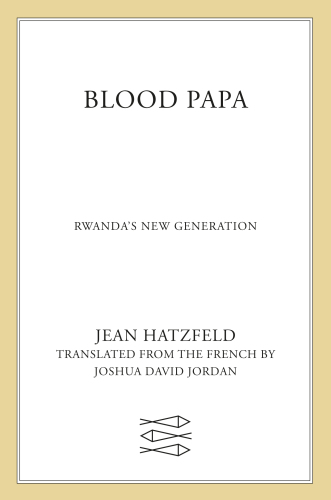
Blood Papa
Rwanda's New Generation
کتاب های مرتبط
- اطلاعات
- نقد و بررسی
- دیدگاه کاربران
نقد و بررسی

June 4, 2018
French journalist Hatzfeld (The Antelope’s Strategy), who has authored three previous books about the 1994 Rwandan genocide—the planned slaughter of more than 800,000 members of the Tutsi ethnic group by Hutu political elites—investigates the legacy of those massacres to powerful effect. He interviews young adults from Nyamata district who were either too young at the time to remember the events or who were born in the years following, and some of their parents and teachers. Surprisingly, the offspring of the Hutu genocidists appear to have suffered more deeply than those of the Tutsi survivors, according to Hatzfeld: Tutsi children receive educational stipends from the government, which has led to unequal opportunities, and the killers’ children feel deep shame. “We pay for sins we didn’t commit,” laments the daughter of one Hutu prisoner. Despite, or perhaps because of, the government’s prohibition on talk of ethnicity, “deep down, a lot of young people from both ethnicities conceal a desire for revenge,” admits the daughter of a Tutsi survivor. This book, more of an ethnography than a history, exposes the effects of the genocide’s stubborn legacy on the next generation, but is not an introduction to the events of 1994. Readers approaching it without prior knowledge of the genocide or Hutu-Tutsi relations will have a hard time fully understanding it, but those who have context will find this an illuminating update.

June 15, 2018
Nearly a quarter-century after the fact, a searching look at the children of genocide in Rwanda.French journalist/activist Hatzfeld (The Antelope's Strategy: Living in Rwanda After the Genocide, 2009, etc.), who has been writing for years on the Rwandan massacre and its aftermath, chronicles his travels across the small nation to speak with young men and women, Hutu and Tutsi alike, whose parents and grandparents were swept up in a back-and-forth violence that saw the deaths of as many as 1 million people. One young Hutu man speaks to the dire consequences of ethnicity in itself, saying that he does not speak of it--especially with members of the other major tribe. People don't care about ethnicity in other African countries, he observes, but to this day in Rwanda, "it attracts misfortune and it blocks understanding." He thinks further and adds, "it's important for the ones who suffered to be clear about who suffered and who committed crimes." That is, it's important to assign blame--and perhaps to keep the wheels of recrimination turning. Aid workers, street people, workers: Hatzfeld is comprehensive in his choice of subjects, many of whom, though too young to remember events firsthand, keep them alive in memory for good and ill. The author himself came under suspicion as someone perhaps "inexplicably trying to rile people up" in the quest of remembrance, when most Rwandans, it seems, would sooner forget--not forgive and forget, just forget. So can genocide be ruled out as a future possibility? Almost certainly not. Says one 16-year-old Tutsi girl, wiser than her years, "deep down, a lot of young people from both ethnicities conceal a desire for revenge. That's why so many young Rwandans are religious. They put their trust in God in order to alleviate their sorrows, in order not to stumble." But, she adds, "We are keeping on our guard, since the threats are quiet for now."Hatzfeld's work is of great importance to understanding the Rwandan tragedy--and to the study of genocide generally.
COPYRIGHT(2018) Kirkus Reviews, ALL RIGHTS RESERVED.

July 1, 2018
French writer and war correspondent Hatzfeld (Life Laid Bare) returns to Rwanda and the district of Nyamata to reconnect with survivors and gain insight from Rwanda's new generation: children who were old enough to remember the genocide as well as those born in the aftermath--sons and daughters of victims and killers alike. Hatzfeld divides these interviews into three sections ("Memory," "The Parents," and "The Future"), collecting accounts from multiple perspectives and driving the conversation without intruding into the speaker's narrative. Hatzfeld records memory and truth as experienced by two very distinct generations. The touching interviews are incredibly human: survivor's guilt bound in hope for the future; the guilt of a killer's child bound in hope for reconciliation. It is easy to forget that this is a work in translation; the interviews flow seamlessly and possess a natural cadence that make them feel incredibly intimate. VERDICT An honest, often hopeful book featuring subjects who speak with candor, hiding nothing. Several of the interviews include descriptions of the bloodshed, but Hatzfeld does not focus on the violence. An excellent choice for readers and researchers interested in reconciliation and the psychosocial impact of genocide.--Gricel Dominguez, Florida International Univ. Lib., Miami
Copyright 2018 Library Journal, LLC Used with permission.

























دیدگاه کاربران